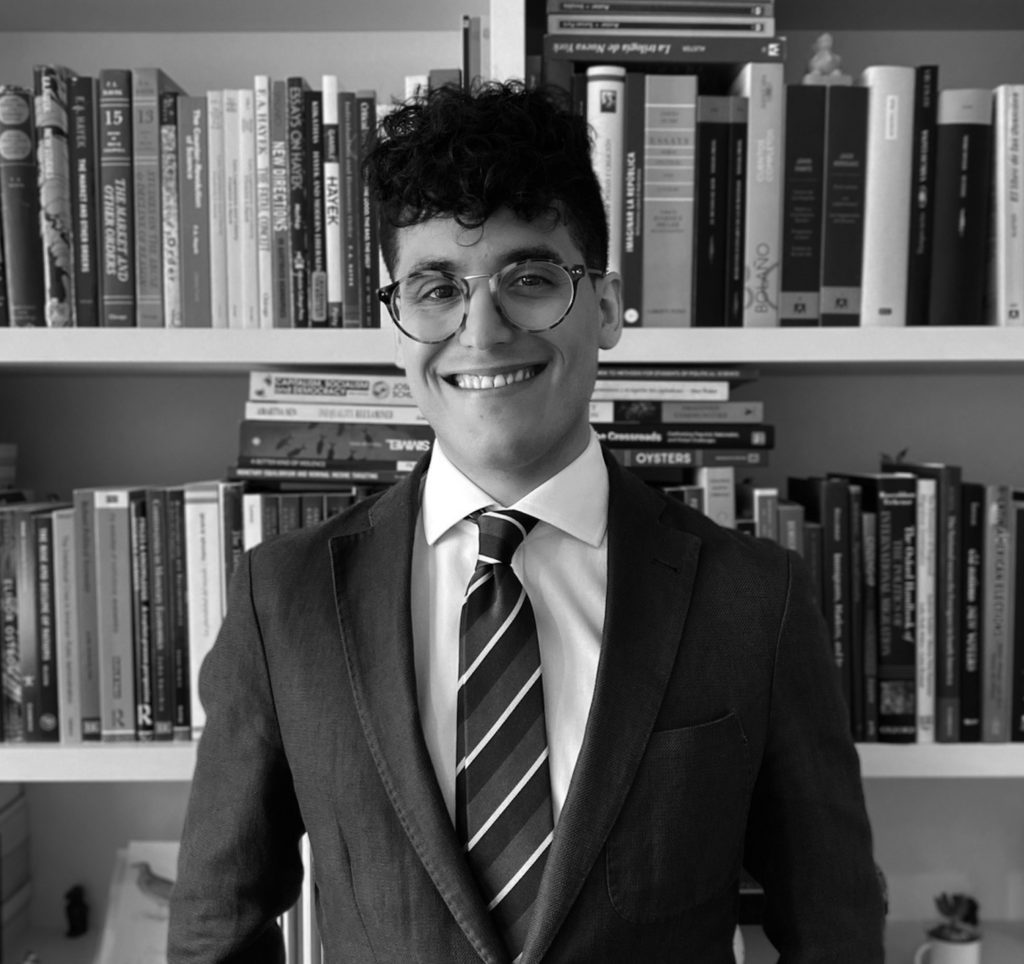The Master’s in Philosophy, Politics and Economics (MPPE) is a multidisciplinary program unique in Chile and the first Master’s program in Spanish worldwide that integrates a political, philosophical, and economic understanding of contemporary social phenomena.
The greatest political and economic thinkers were also prominent philosophers and sociologists deeply engaged in public debate. This interdisciplinary vision asserts that the disciplines of politics and economics are inextricably linked and that it is impossible to properly understand political processes without examining the economic context in which politics operates—and vice versa.
Due to the excessive specialization of academic disciplines, economists and political scientists have become technicians detached from the humanities, turning their backs on political economy and its relationship with moral philosophy, ethics, political institutions, and society as a whole. This impoverished view of the social sciences has become increasingly evident in Chile in recent decades—contributing to short-sightedness and the lack of thoughtful dialogue that have led us to the deep social conflicts we face today.
It is precisely to counter these risks—which have led many to intellectual arrogance, polarization, and ultimately to the dismantling of the foundations of free and democratic societies—that we have designed this Master’s program.
March 27, 2025
Tuesdays and Thursdays, 6:00 PM – 9:00 PM
In-person
Santiago
4 semesters
15 UF
170 UF
It provides the fundamental knowledge needed to analyze complex problems of contemporary political and economic life from a philosophical and interdisciplinary perspective. This program aims to enrich the perspectives and analytical tools with which we think about political, social, and economic order.
To develop the ability to think critically and independently about key issues in philosophy, politics, and economics, as well as about the interaction among these disciplines and how they ultimately affect a country’s development and democracy.
To integrate the perspectives offered by philosophical, economic, and political science analysis in addressing contemporary social problems, in order to understand the complexities of society.
To recognize how different traditions in the social sciences and humanities approach the relationship between democracy, modernity, economic institutions, and markets.
To equip students with both theoretical and applied understanding of the relationship between economic processes, institutions, and political ideas—as well as the broader philosophical and ethical questions that underlie economic and democratic decisions.
To provide a solid foundation for the systematic study of philosophy, politics, and political economy, enabling graduates to work in professional fields related to these disciplines in both the public and private sectors, and to pursue further academic training toward a doctoral degree in these areas.
This program is aimed at all professionals interested in enriching their understanding of political and economic phenomena from an interdisciplinary perspective, thereby acquiring the fundamental analytical tools of all three disciplines.
It is designed for professionals passionate about the role of ideas, public debate, and the interaction between politics and economics—those who seek a well-rounded and foundational education in philosophy, political thought, and political economy.
Our Master’s program seeks to train competent and well-balanced professionals capable of contributing in an informed, rigorous, and thoughtful manner to key political-economic discussions and to public affairs more broadly.
Graduates will integrate the perspectives offered by philosophical, economic, and political analysis of contemporary societal problems in order to understand new tensions surrounding modernity, representation, pluralism, and justice.
Upon completing the program, graduates will have acquired and updated their knowledge of the main philosophical, economic, and political traditions through training in the history and debates of ideas, critical analysis of foundational texts, and the ability to work across disciplines.
As a result, graduates will be able to analyze texts, engage with diverse authors, and reflect on philosophical, political, and economic problems. They will be equipped to think and write autonomously and critically, producing research or analysis in these areas.
*In the case of foreign applicants:
Semester I
Semester II
Semester III
Semester IV
